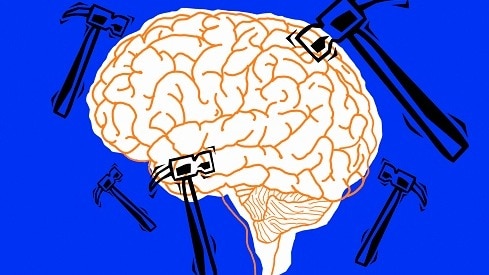
News
November 13, 2025
What makes migraine the world's second-most disabling condition
What makes migraine the world's second-most disabling condition
Migraine. The word often conjures images of a bad headache, but for millions worldwide, it's far more than just a throbbing pain. It's a debilitating neurological disorder that can steal days, even weeks, from their lives. But what exactly makes migraine the world's second-most disabling condition, as classified by the World Health Organization?
The answer lies in the multifaceted nature of the attacks and the profound impact they have on a person's ability to function. Migraine isn't simply a headache; it's a complex cascade of neurological events. While head pain is a prominent symptom, it's often accompanied by a host of other distressing experiences.
Many sufferers experience visual disturbances known as auras, which can manifest as flashing lights, zigzag lines, or temporary vision loss. Nausea and vomiting are also common, making it difficult to eat or even keep down medication. Sensitivity to light (photophobia), sound (phonophobia), and smells (osmophobia) are hallmarks of migraine, forcing individuals to retreat to dark, quiet spaces for relief.
Beyond these acute symptoms, migraine can also cause cognitive difficulties. People may experience brain fog, difficulty concentrating, and problems with memory and speech. These cognitive impairments can make it challenging to work, study, or even engage in simple conversations.
The unpredictable nature of migraine attacks further contributes to its disabling impact. Attacks can be triggered by a variety of factors, including stress, hormonal changes, certain foods and drinks, weather changes, and even lack of sleep. This unpredictability makes it difficult for individuals to plan their lives, attend social events, or maintain a consistent work schedule.
The chronic nature of migraine, where attacks occur frequently, compounds the problem. For those with chronic migraine, headaches occur on 15 or more days per month, significantly impacting their quality of life. The constant pain, fatigue, and cognitive difficulties can lead to depression, anxiety, and social isolation.
Furthermore, the lack of understanding and stigma surrounding migraine can be isolating for sufferers. Often dismissed as "just a headache," migraine is a serious medical condition that requires proper diagnosis and treatment. Increased awareness and research are crucial to improving the lives of those affected by this debilitating condition.
The answer lies in the multifaceted nature of the attacks and the profound impact they have on a person's ability to function. Migraine isn't simply a headache; it's a complex cascade of neurological events. While head pain is a prominent symptom, it's often accompanied by a host of other distressing experiences.
Many sufferers experience visual disturbances known as auras, which can manifest as flashing lights, zigzag lines, or temporary vision loss. Nausea and vomiting are also common, making it difficult to eat or even keep down medication. Sensitivity to light (photophobia), sound (phonophobia), and smells (osmophobia) are hallmarks of migraine, forcing individuals to retreat to dark, quiet spaces for relief.
Beyond these acute symptoms, migraine can also cause cognitive difficulties. People may experience brain fog, difficulty concentrating, and problems with memory and speech. These cognitive impairments can make it challenging to work, study, or even engage in simple conversations.
The unpredictable nature of migraine attacks further contributes to its disabling impact. Attacks can be triggered by a variety of factors, including stress, hormonal changes, certain foods and drinks, weather changes, and even lack of sleep. This unpredictability makes it difficult for individuals to plan their lives, attend social events, or maintain a consistent work schedule.
The chronic nature of migraine, where attacks occur frequently, compounds the problem. For those with chronic migraine, headaches occur on 15 or more days per month, significantly impacting their quality of life. The constant pain, fatigue, and cognitive difficulties can lead to depression, anxiety, and social isolation.
Furthermore, the lack of understanding and stigma surrounding migraine can be isolating for sufferers. Often dismissed as "just a headache," migraine is a serious medical condition that requires proper diagnosis and treatment. Increased awareness and research are crucial to improving the lives of those affected by this debilitating condition.
Category:
Politics